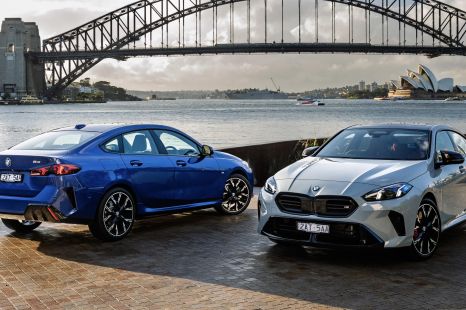

Max Davies
2025 BMW 2 Series Gran Coupe review
4 Months Ago
We took two brand new GT3 RS's from Melbourne to Adelaide, one being driven gently and the other as hard as possible. Which method is right?
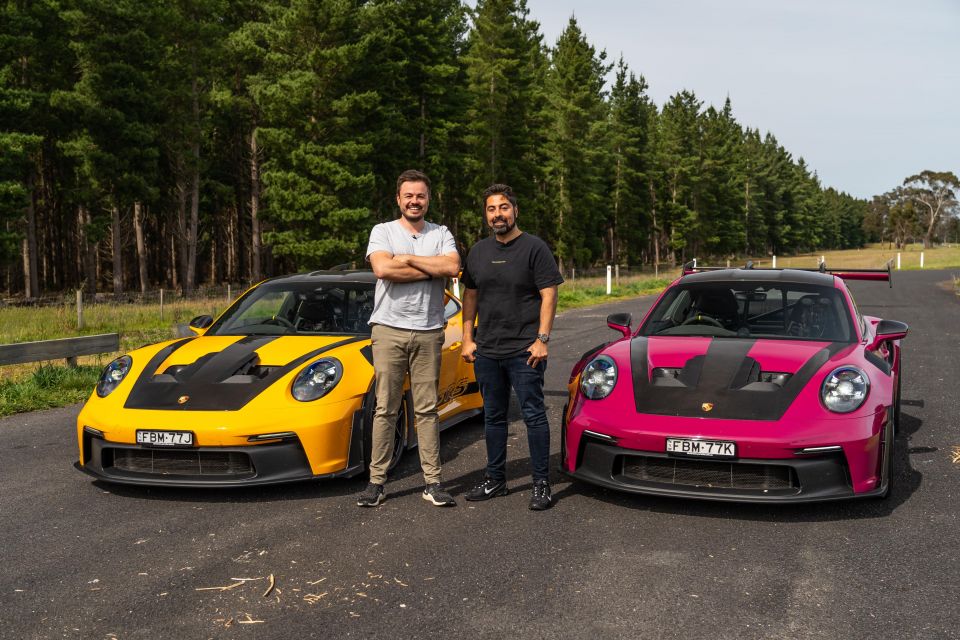
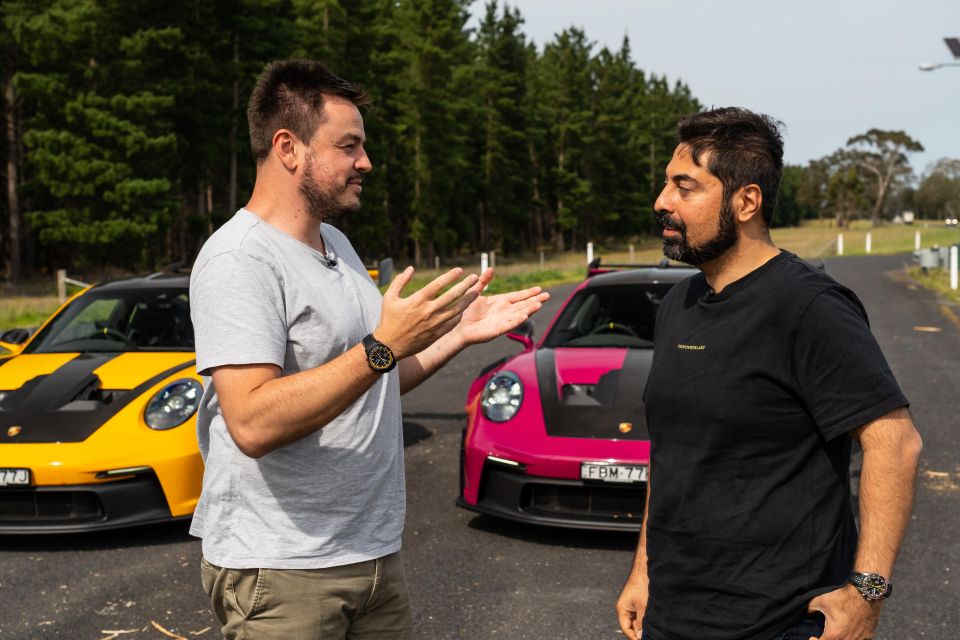

Quickly see how this car stacks up against its competition. Select any benchmark to see more details.
Where expert car reviews meet expert car buying – CarExpert gives you trusted advice, personalised service and real savings on your next new car.
What’s the best way to ‘break in’ a car? No, we are not talking about breaking in to or stealing a car (that is a bad idea), we are talking about how one would potentially go about running in or bedding in the engine and transmission of their brand new car – specifically, a 2024 Porsche 911 GT3 RS.
Being the incredibly scientifically-minded people that we are, we pleaded our case to Porsche Australia to lend us two brand-new GT3 RS vehicles for a 1500km drive from Melbourne to The Bend racetrack in Adelaide, so that we can break them in using different schools of thought and then see who can win a drag race.
The answer to the question of how to run in a new car has changed a fair bit over the last few decades. Modern cars are no longer really required to be babied in the initial period, and electric cars have no run-in period at all – not withstanding new tyres and brakes needing some bedding in.
But for those of us that have mechanical sympathy, or have just spent an unreasonable amount of money on a car, the idea of mistreating it or being ambivalent to its formative first few hundred kilometres seems almost nauseating. So what does one do with a brand new car?

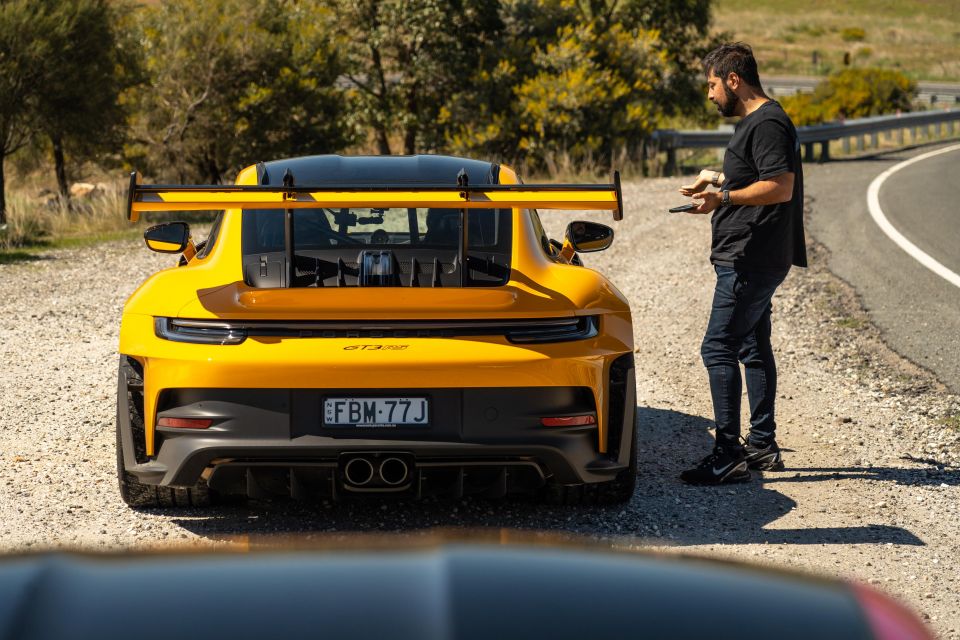
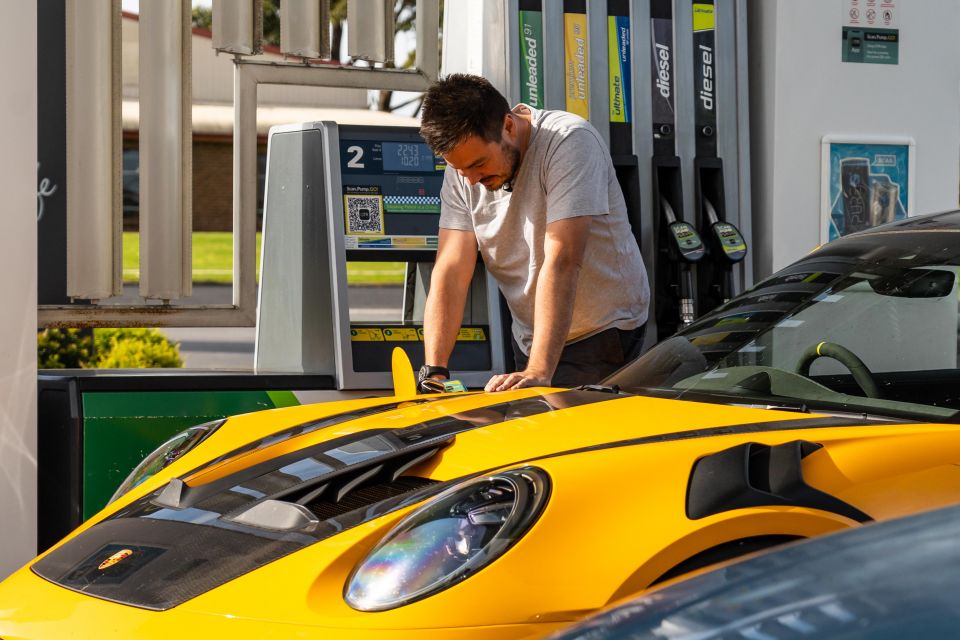
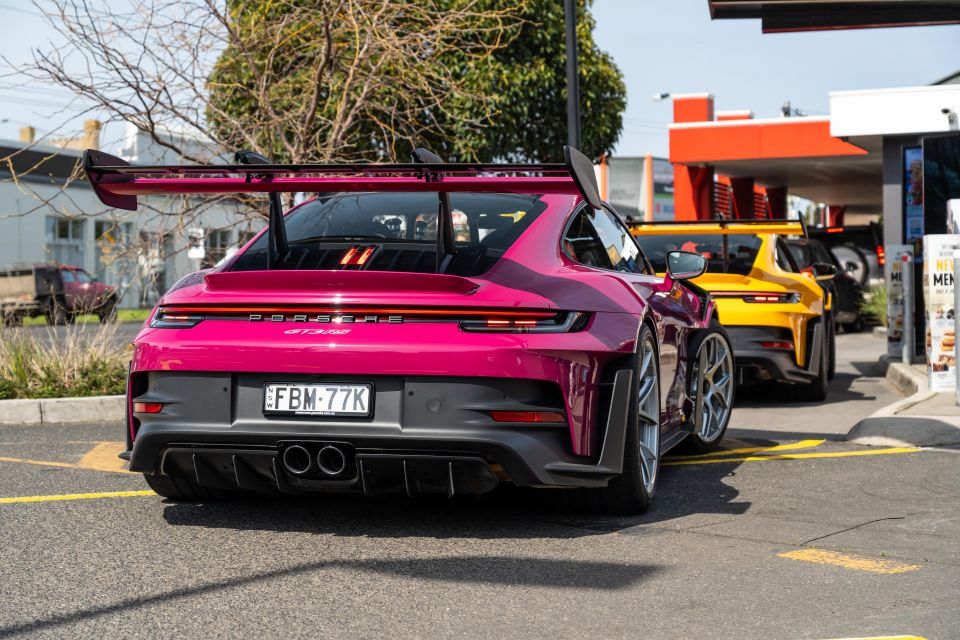
We asked this question of many people from many different manufacturers, and there was some basic consensus amongst the more conservative thinkers around common themes that emerged. Firstly, the most common feedback we got was avoiding high RPM for the first little while – this ranged from 500km to 1500km, depending on who you asked.
Second was to avoid staying in the same gear or the same speed for long periods (such as on the highway) during the break in period and thirdly, don’t abuse the car by going flat to the floor repeatedly.
So we took all that advice on board and decided to ignore it, at least for one of the cars. Because for all the folks that told us to baby the car, some one of equal rank and experience told us to drive it like we stole it.
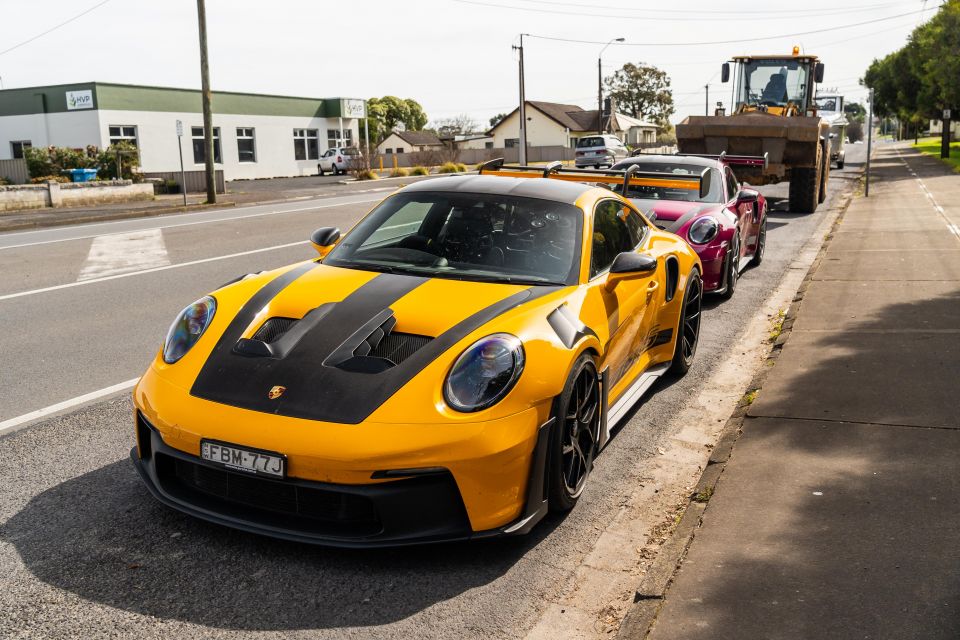
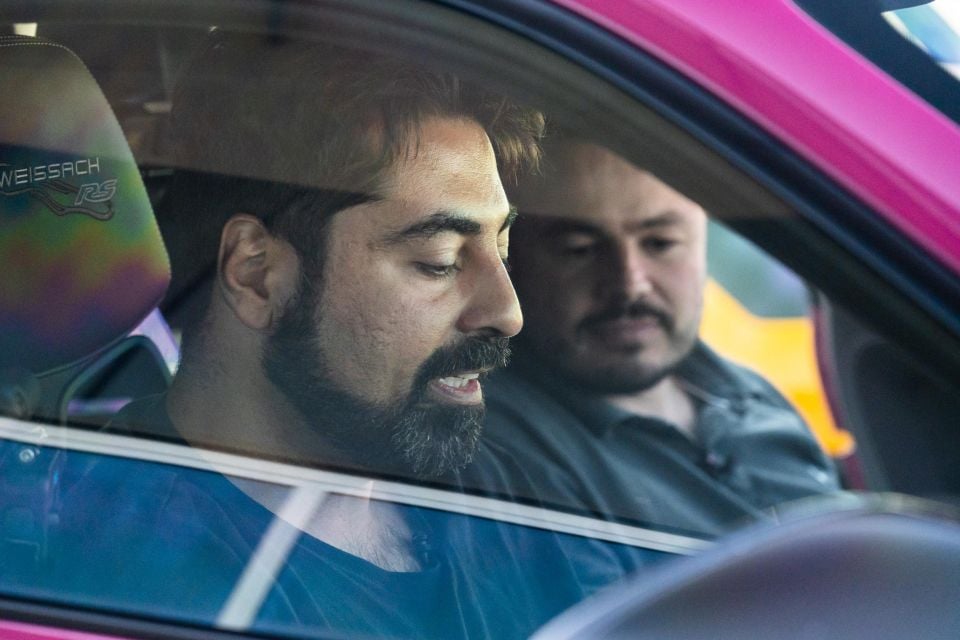
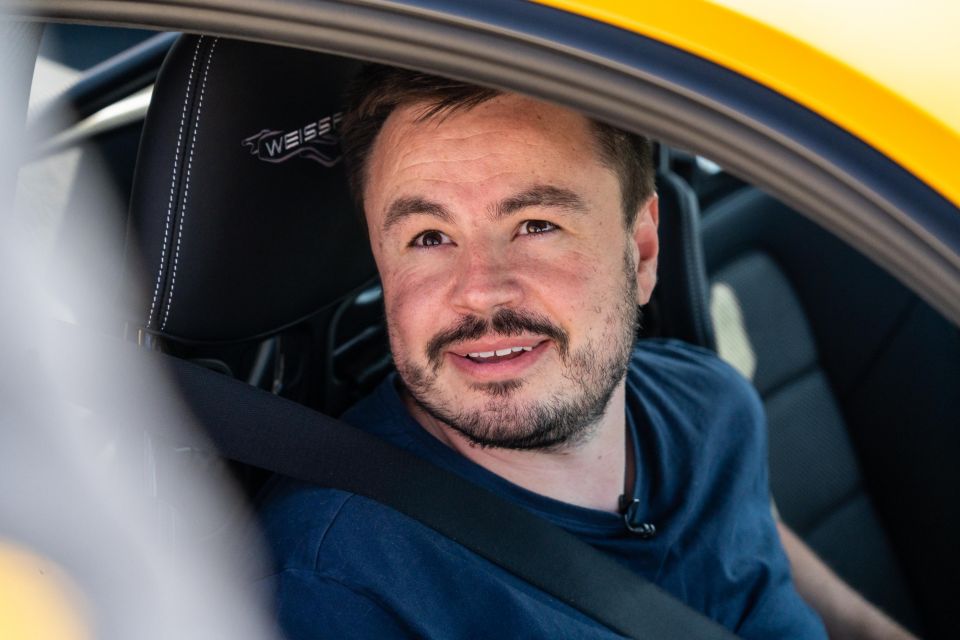
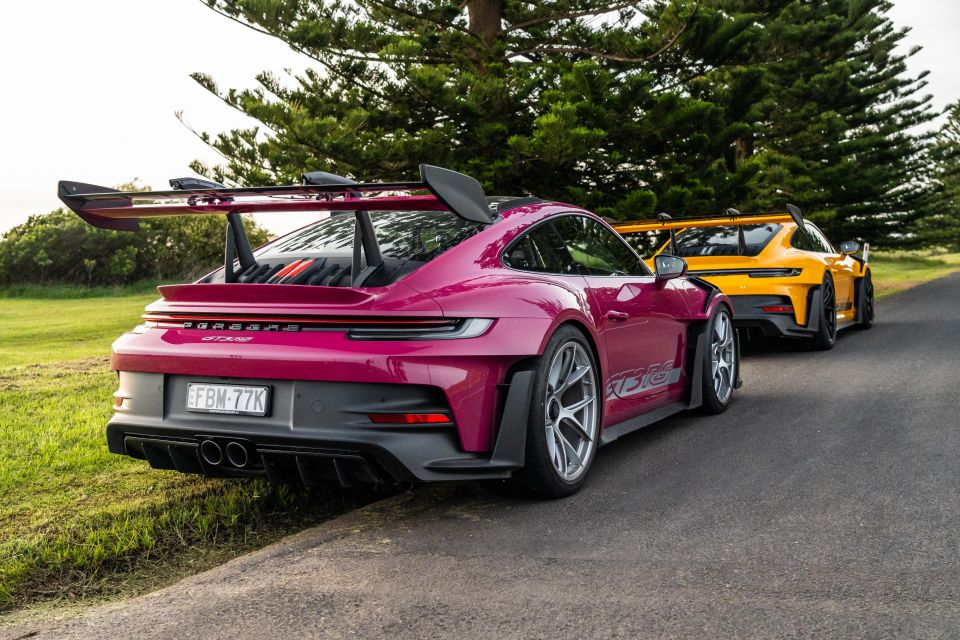
Porsche recommends the following break in procedure:
You can read our review of the GT3 RS here, so this isn’t really a showcase of the car or its insane performance. Nonetheless, for those that don’t know, the best of the current crop of 911s is powered by a 4.0-litre naturally-aspirated flat six pumping out 386kW of power and 465Nm of torque, giving it a 0-100km/h time of 3.2 seconds.
Paul being the (apparent) engineer that he is, drew the short straw and decided to follow Porsche’s instructions, while yours truly decided it was a good idea to try and find the holy grail at 9000rpm as often as possible without being arrested.
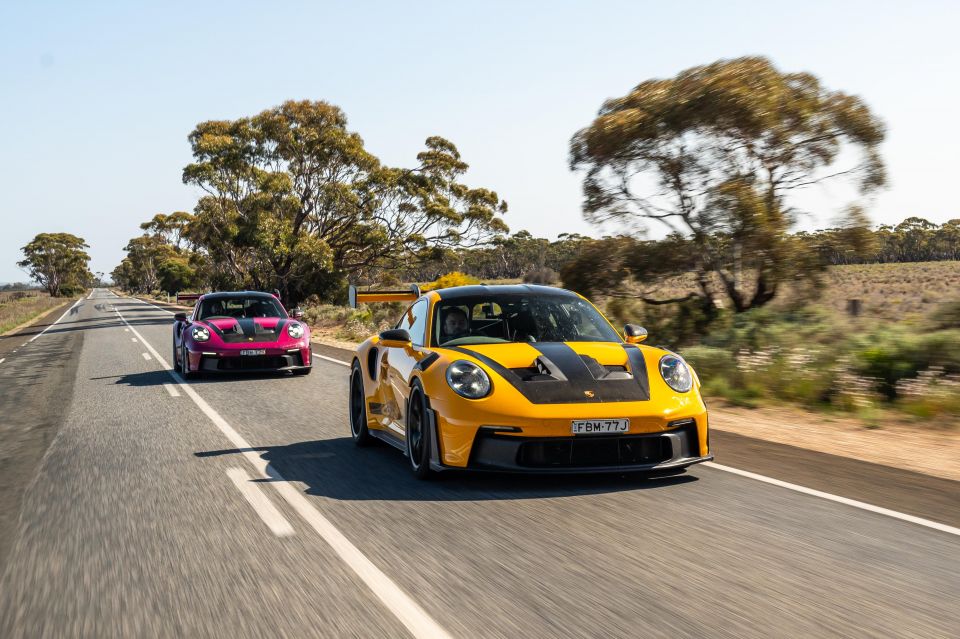
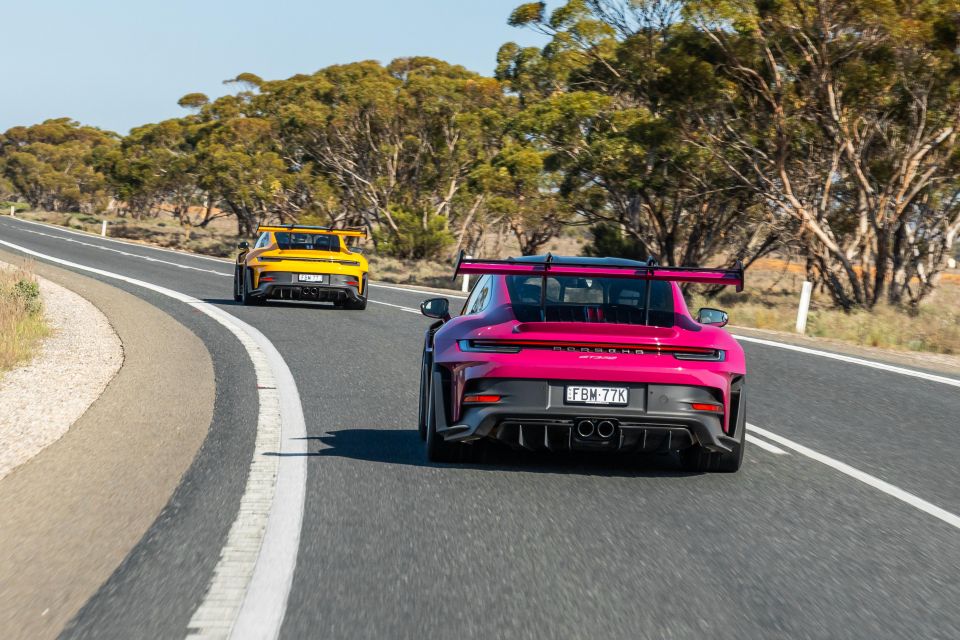
We started our journey from Porsche Centre Melbourne and headed to Portland via the coast. From there we went towards Mount Gambier, then to Renmark, and finally The Bend.
This provided us varying degrees of different roads, some twisty stuff and a lot of highways. We laughed, we joked, we drove slow and we drove fast (well, not Maric). We even threw bananas at each other in what has become CarExpert tradition on road trips.
Best of all though, we got to experience the absolute pinnacle of automotive at the very height of its existence. The fact we are writing a story and creating a feature video on how to break in a Porsche 911 GT3 RS is not lost on us.
This is the passing of an age; in the very near future our kids may never ask such questions because their electric Porsche has no such qualms. There will soon be no new Porsches that need breaking in.
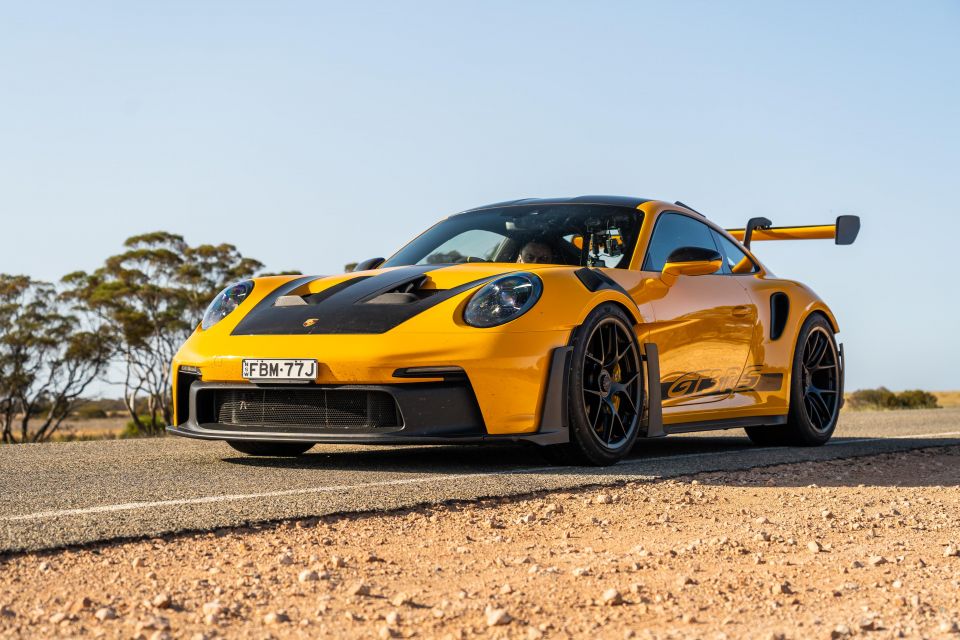
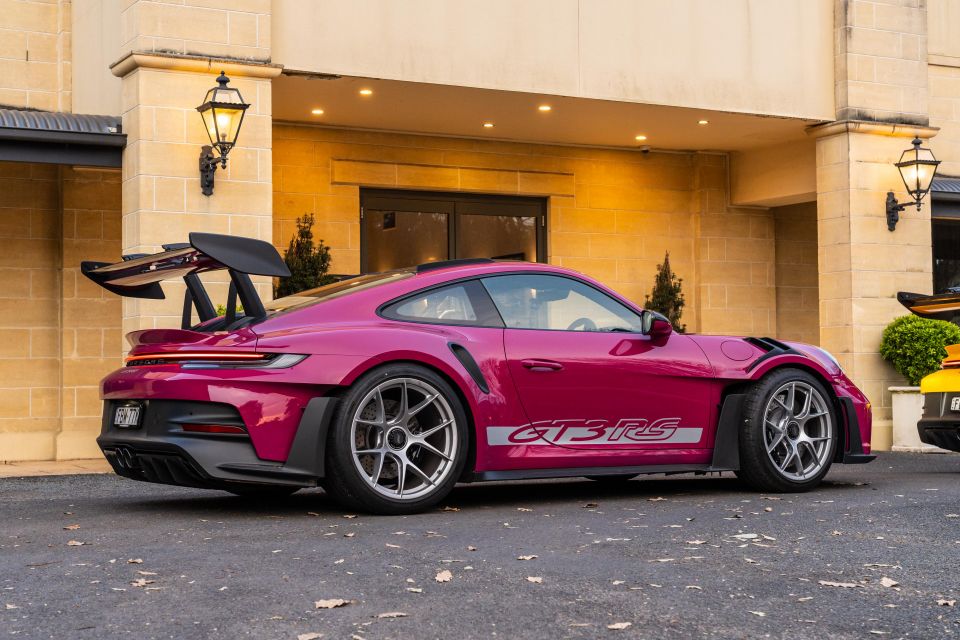
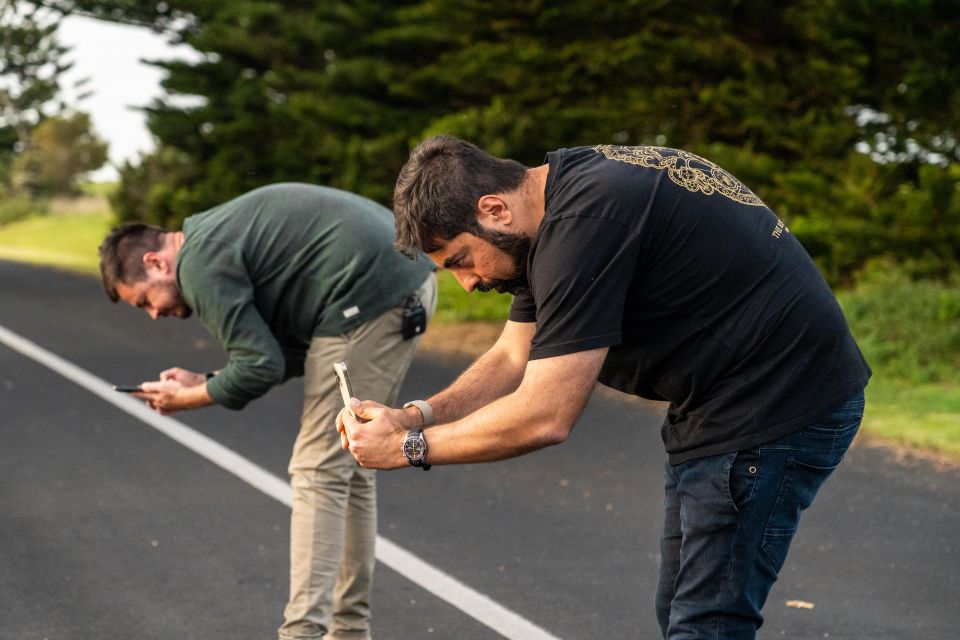
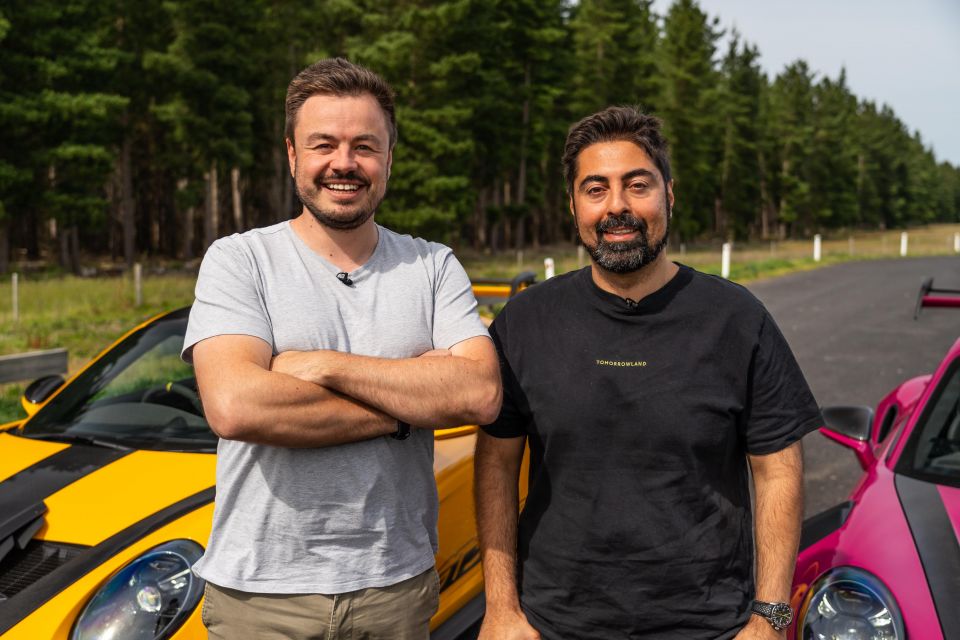
For those that have never done an outback drive from one major city to another in Australia, we recommend you fix that immediately.
Get a group of friends together and go for a drive. Make it long, go inland, stay at a country hotel and enjoy the food and culture. Bring your walkie talkies so you can laugh the whole way about the experience, because it’s definitely one of those things that you just have to do every once in a while.
Our biggest fear doing this trip was that we would either get a puncture or something would go wrong with one of the cars, given they were brand new with delivery kilometres. It’s often the case that brand-new cars have some issues that need fixing after the first few weeks.
Thankfully, we had no tyre issues despite some truly horrendous roads we had to traverse. As for the reliability factor, Porsche is a very unique manufacturer when it comes to that.
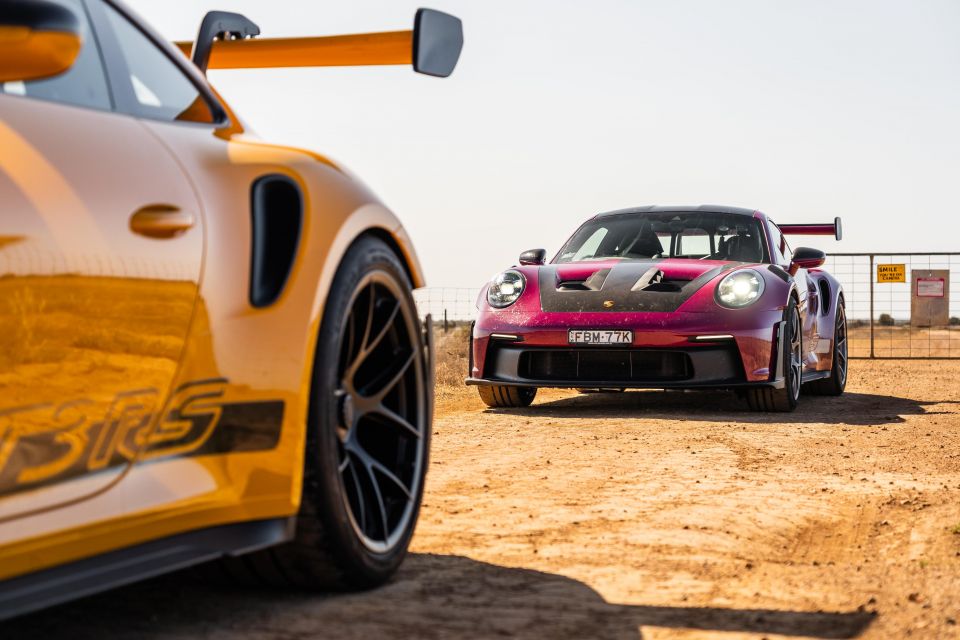
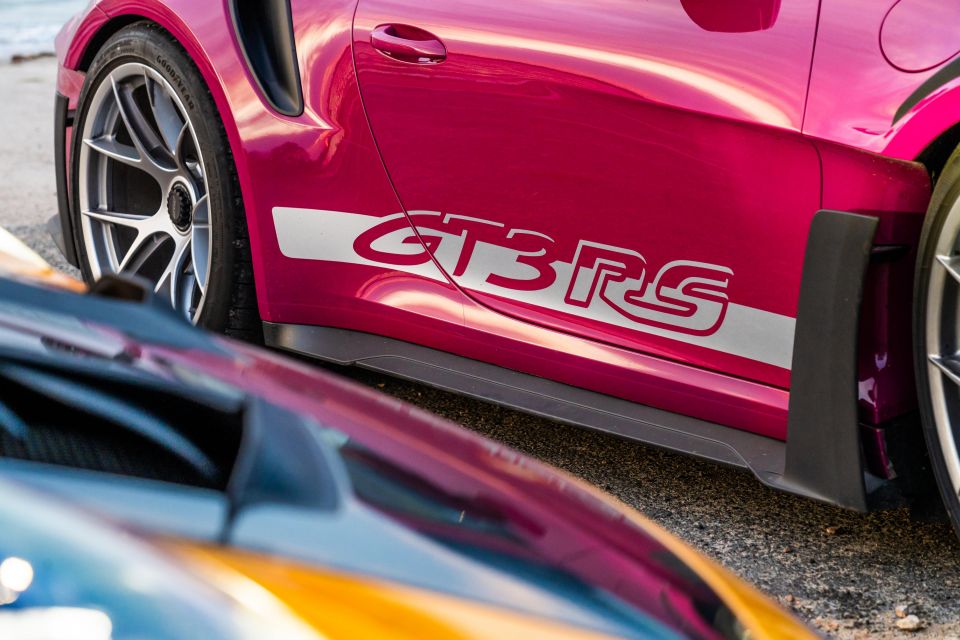

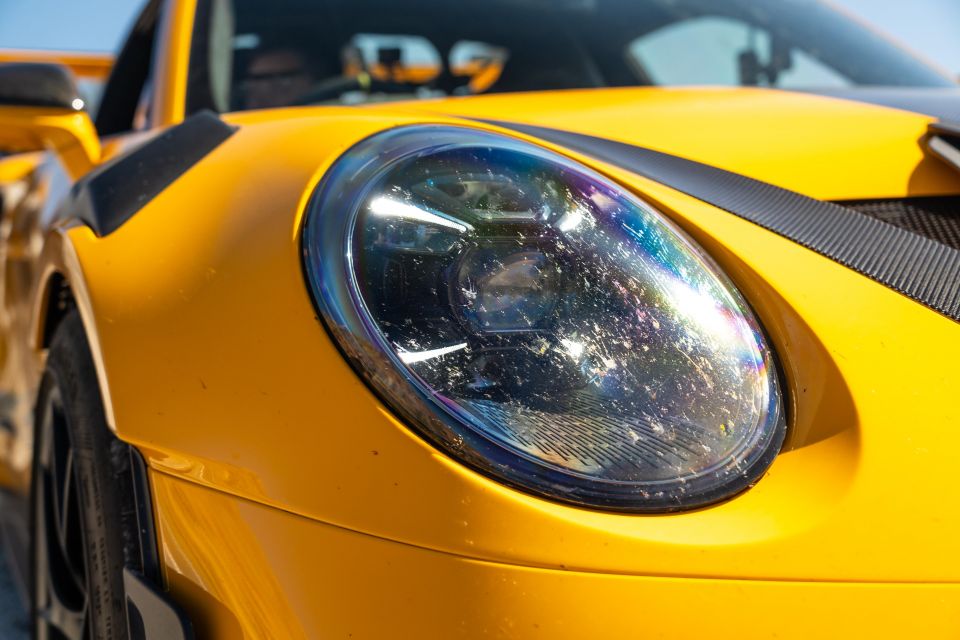
For those fortunate enough to have owned exotics from the Italians or Brits, or even some other German brands, you will know that no other car on the planet can put up with the abuse that a 911 can on a track and then drive home.
There are no warning lights, there are no cooling issues, there are no brake issues, the engine doesn’t overheat, the transmission can do 20 hard launches using launch control in a row and ask for more. There is nothing that you can really do to a 911 GT3 RS on a race track that will make it ask for mercy.
In fact, it’s you that will ask for mercy, because the car is not only likely much faster than you are able to handle, but it’s also more reliable than you, in being able to do dozens and dozens of laps in a row without getting fatigued.
After more than 1500km of driving, neither 911 GT3 RS threw a single tantrum. Not a warning light, not an error message, not even a hint that this thing wasn’t already tested to the maximum before it ever got unwrapped. The only thing that happened occasionally was our wireless Apple CarPlay connection would drop out.
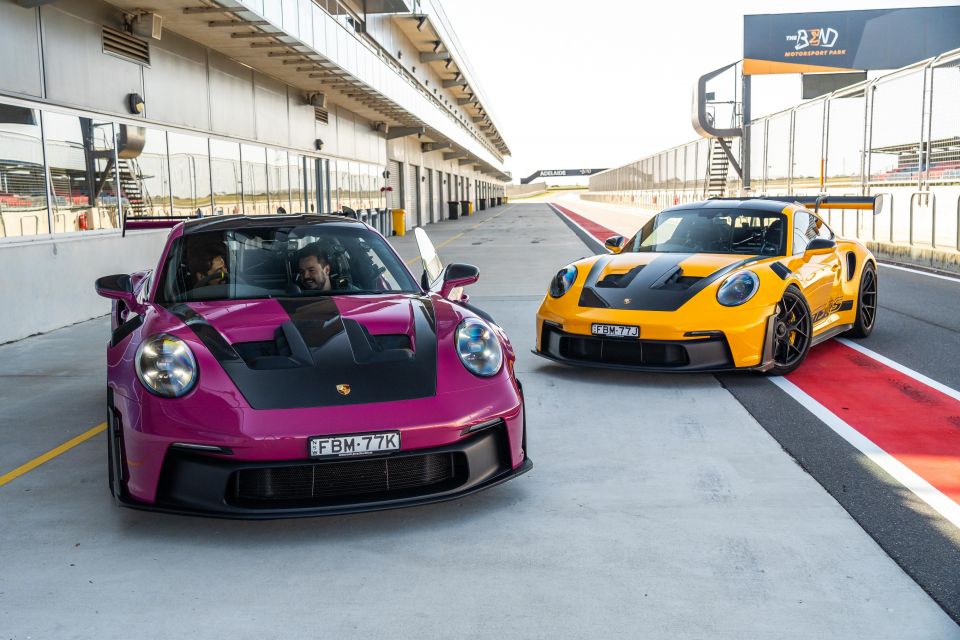
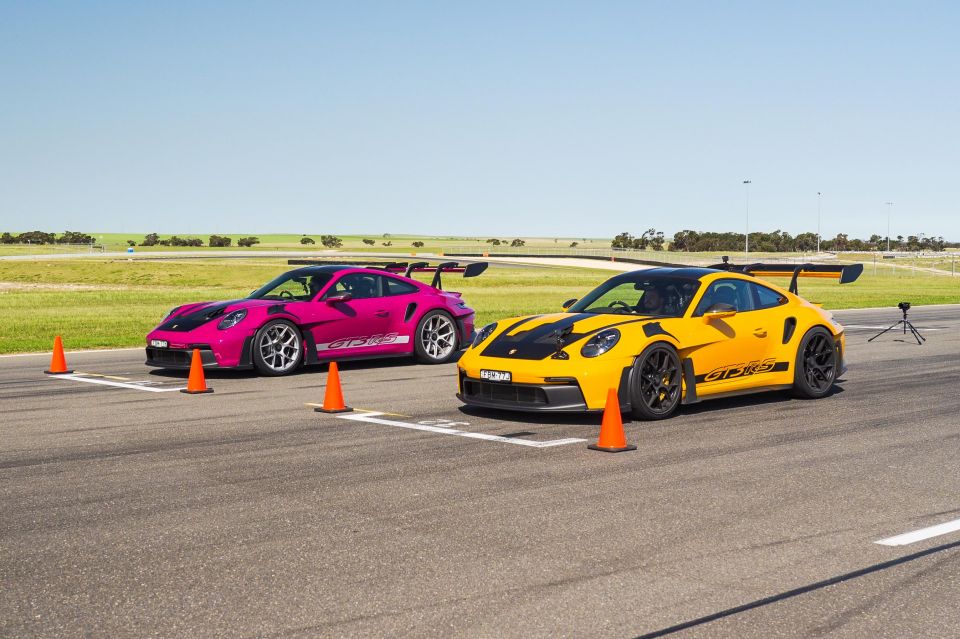
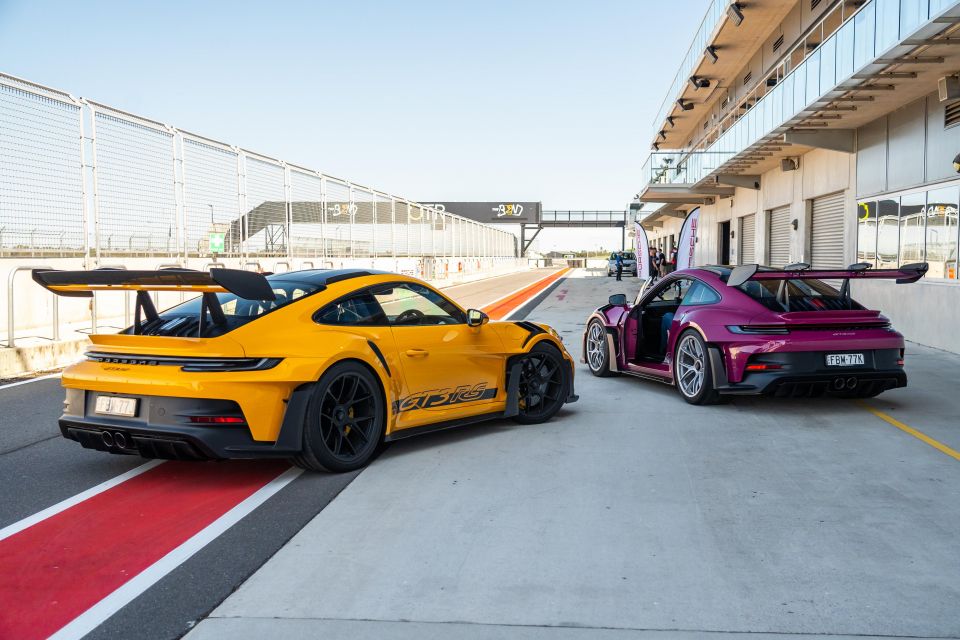
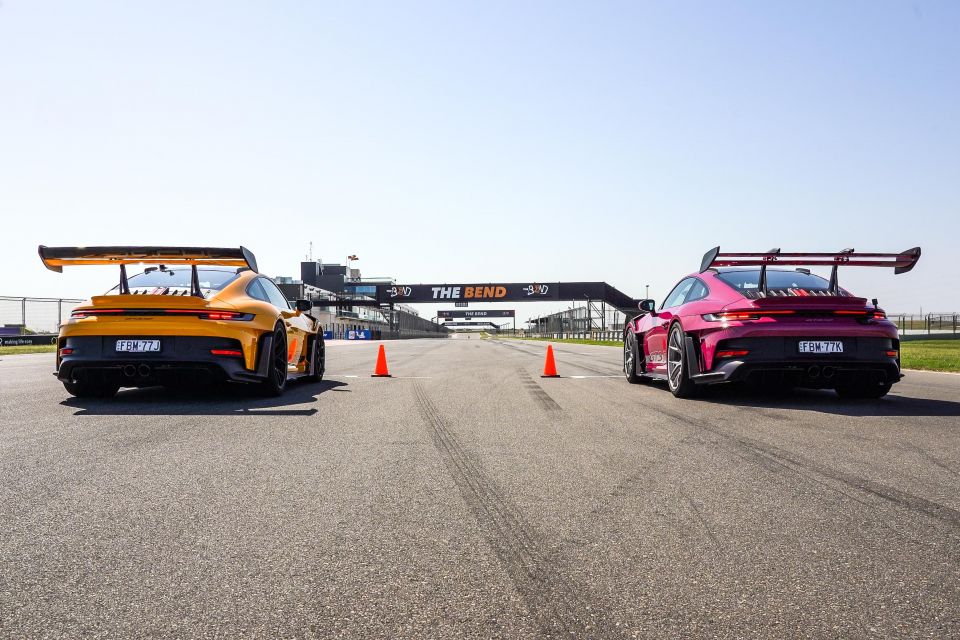
At the end of it all, we came to The Bend to test our theory, which car was going to perform better and did our differing break in procedures make any difference at all? While we would love to spoil it for you, we recommend you watch the video to find out.
Tell us what road trip you would like to see us do next and what you would like us to test.
Click the images for the full gallery
MORE: Everything Porsche 911
Where expert car reviews meet expert car buying – CarExpert gives you trusted advice, personalised service and real savings on your next new car.
Alborz is the founder of CarAdvice (sold to Nine and now Drive) and co-founder of CarExpert. He is an honourary adjunct professor & entrepreneur in residence at the University of QLD. He loves naturally-aspirated V8s, V10s and V12s and is in denial about the impending death of the internal combustion engine. The best way to reach him is via Instagram.


Max Davies
4 Months Ago
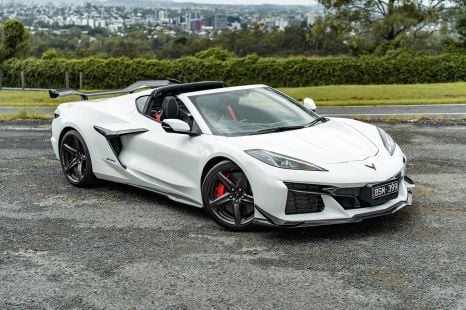

William Stopford
2 Months Ago
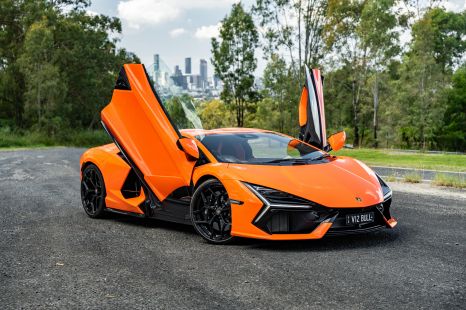

Alborz Fallah
1 Month Ago
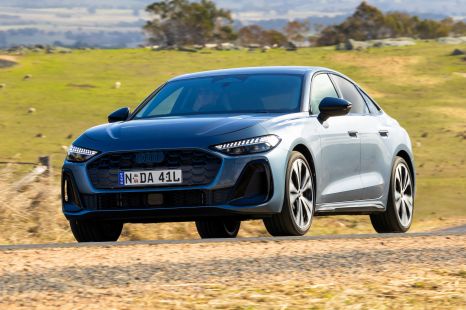

James Wong
26 Days Ago
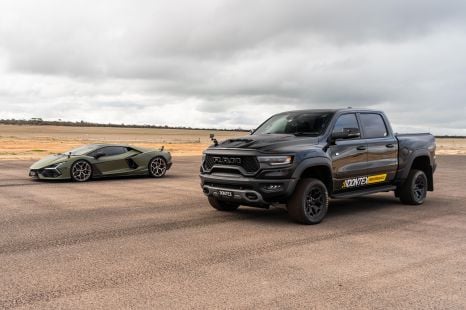

Paul Maric
15 Days Ago
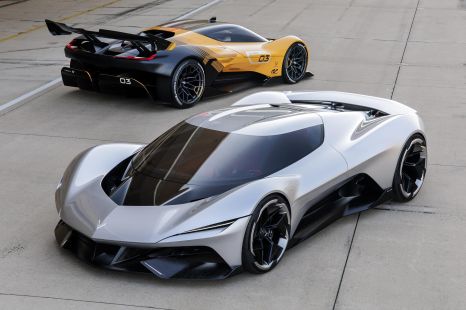

William Stopford
11 Days Ago